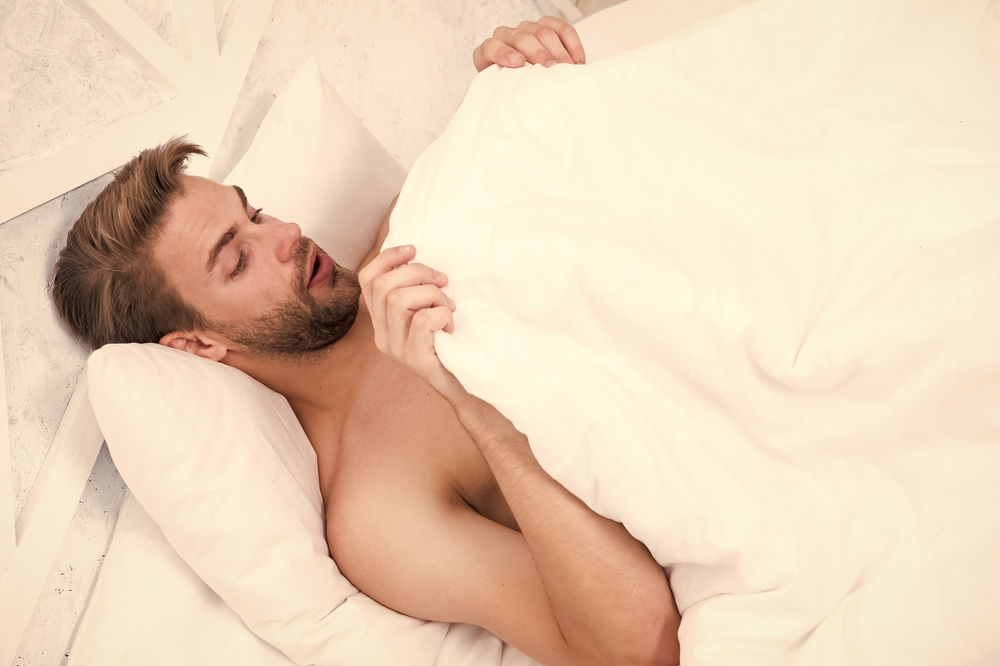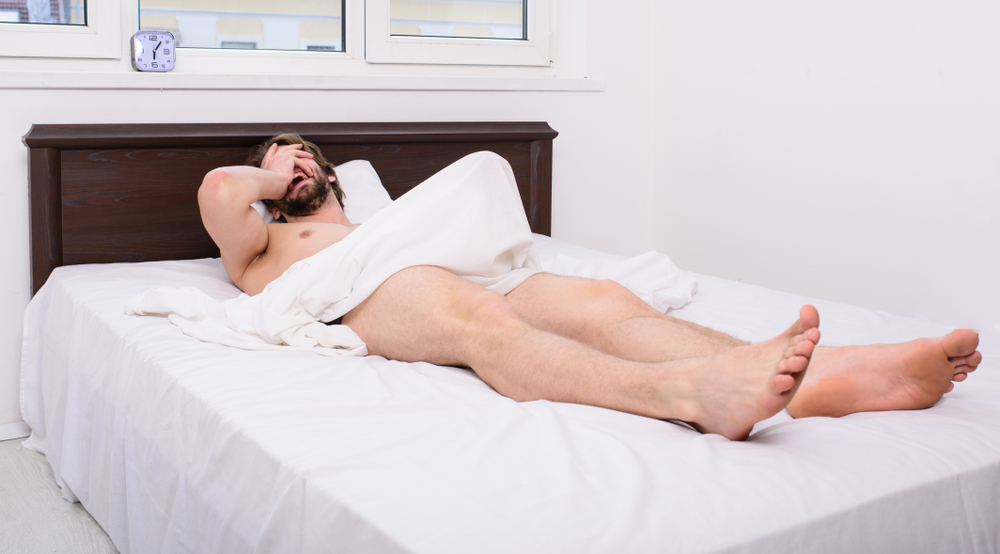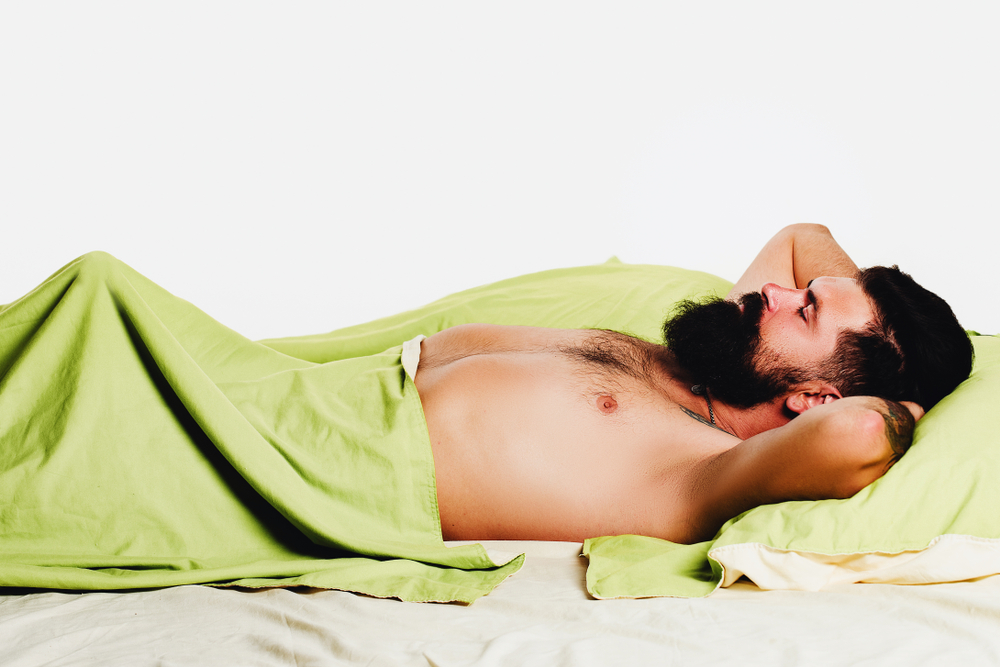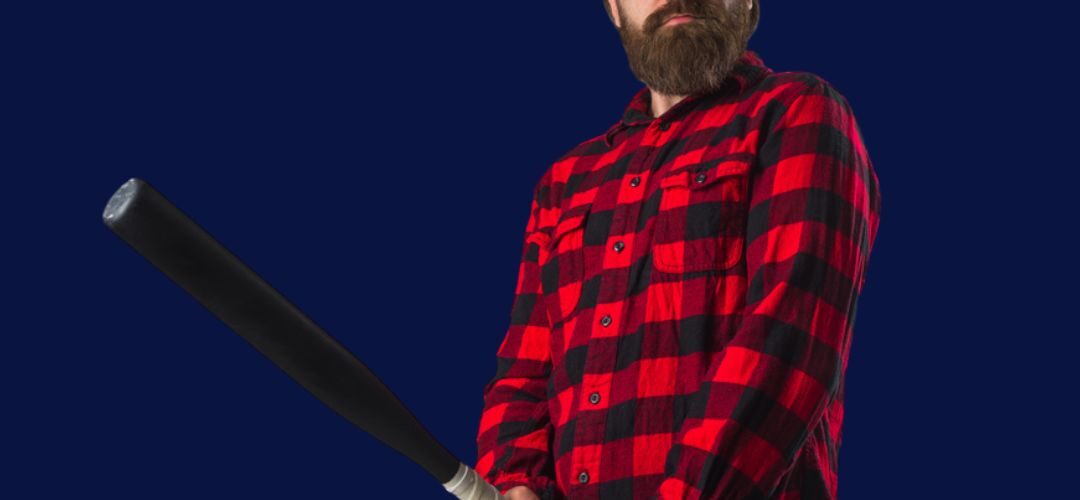Morning erections and nocturnal penile tumescence (NPT) explained

If you’ve ever woken from your evening slumber with an erect penis, chances are you’re familiar with experiencing morning wood, or nocturnal penile tumescence (NPT) as it’s medically known.
Perhaps it’s a reassuring reminder that your penis is functioning properly or a signal to your partner that you’re prepared for some early morning sexual arousal. That said, have you ever taken a moment to ponder why getting morning wood is a regular occurrence beyond the erections featured in your sex life?
What exactly causes the male morning erection? And, what does it mean when morning erections stop? It’s time to take a good, hard look at morning erections and how they impact the erectile function of men.
What is morning wood?
“Morning wood” is the slang term for when a person wakes up with an erect penis. However, the term “morning wood” is a misnomer; as the penis can experience multiple erections over the course of a night in what’s medically known as nocturnal penile tumescence (NPT).
Experiencing morning wood and nighttime erections is actually a sign of good sexual health. It indicates the blood vessels that allow blood flow to the penis are enabling enough blood flow to form a hard and healthy erection.

What causes nocturnal penile tumescence?
Although researchers haven’t yet agreed on the cause of NPT, so far we know that morning wood happens during rapid eye movement (REM) sleep. According to The Sleep Foundation, REM sleep is one of the stages of deeper sleep associated with dreaming and memory consolidation.
During REM sleep, the parasympathetic nervous system remains highly active.
The parasympathetic nervous system is a part of the autonomic nervous system that’s responsible for many functions that you don’t have to consciously think about to control, such as heart rate, blood pressure, and digestion. As opposed to the sympathetic nervous system that controls the body’s “fight or flight” response, the parasympathetic nervous system helps to control the body’s response during times of rest.
The fact that the parasympathetic nervous system remains active during REM sleep means that many involuntary bodily functions continue to occur when you’re sleeping, including nocturnal erections and the sexual function in question, the morning wood.
Beyond this, the causes of most morning erections are possibly due to a combination of hormonal changes, and unintentional stimulation.
Hormonal changes (changes in testosterone levels)
Testosterone is the male sex hormone that helps to regulate fertility, muscle mass, fat distribution, and red blood cell production. It’s also responsible for the development of male sexual characteristics, such as a deepened voice, facial hair, pubic hair, and sex drive.
A man’s testosterone levels hits their peak first thing in the morning, causing a higher-than-average chance of an early morning boner.
Unintentional physical stimulation
Despite the eyes being closed during sleep, the body can still remain aware of its surroundings. Unintentional physical contact with a partner or pressure from bedlinen during sleep may stimulate the penis to the point of an erection.
Pressure on a full bladder
It’s thought that the sacral nerve may play a role in nocturnal and morning erections. When the bladder is full, it has the ability to press on the sacral nerve, leading to activation of the parasympathetic nervous system, and consequently an unconscious hard-on.
So, morning wood isn’t caused by sexual dreams?
While it may common for dreams of a sexual nature to cause some of your nocturnal salutes, sexual stimulation isn’t the leading cause of morning wood. The average man is likely to experience more than one erection per night, no matter the subject of their dreams.
Who gets morning erections?
If you’re a human with a penis, aged between 6 and 70, you qualify for the experience of regular NPT. Morning erections are completely normal. In fact, they’re a good sign of penile health, indicating healthy nerves and blood supply to the penis, and an increased likelihood of being physically capable of forming and maintaining erections during waking hours.

How often should you get morning wood?
Since there are several sleep cycles per night, you can expect to have as many as five erections per night and these can last up to 20 or 30 minutes. Keep in mind that this is dependent on sleep quality and so, morning erection may not occur daily.
It’s no secret that young men have higher testosterone levels than older men. As a man gets older, they can expect to experience NPT less often. However, the number and quality of erections should decline gradually with age, as hormone levels shift.
What to do if you don’t get morning wood?
Stress, sleep quality, mental health, physical health, and alcohol consumption are all factors that can inhibit the body’s ability to form an erection. If you experience a change in the regularity of your morning erections combined with other forms of sexual dysfunction (e.g. low sex drive), it may be a sign of an underlying health issue, like erectile dysfunction (ED).
Speak with a health professional for professional medical advice.
When to see a doctor about NPT
If you find yourself dealing with a sudden drop in the number of NPT episodes or sleep-related painful erections, speak with a trusted healthcare provider to rule out any potential health conditions.
Let’s get your health sorted!
Morning wood aside, if you commonly experience ED, PE, or low self-esteem that impacts sexual activity, we’re here to help you get the meds you need for a satisfying sex life. Start a consult with a Stagger doctor today!
